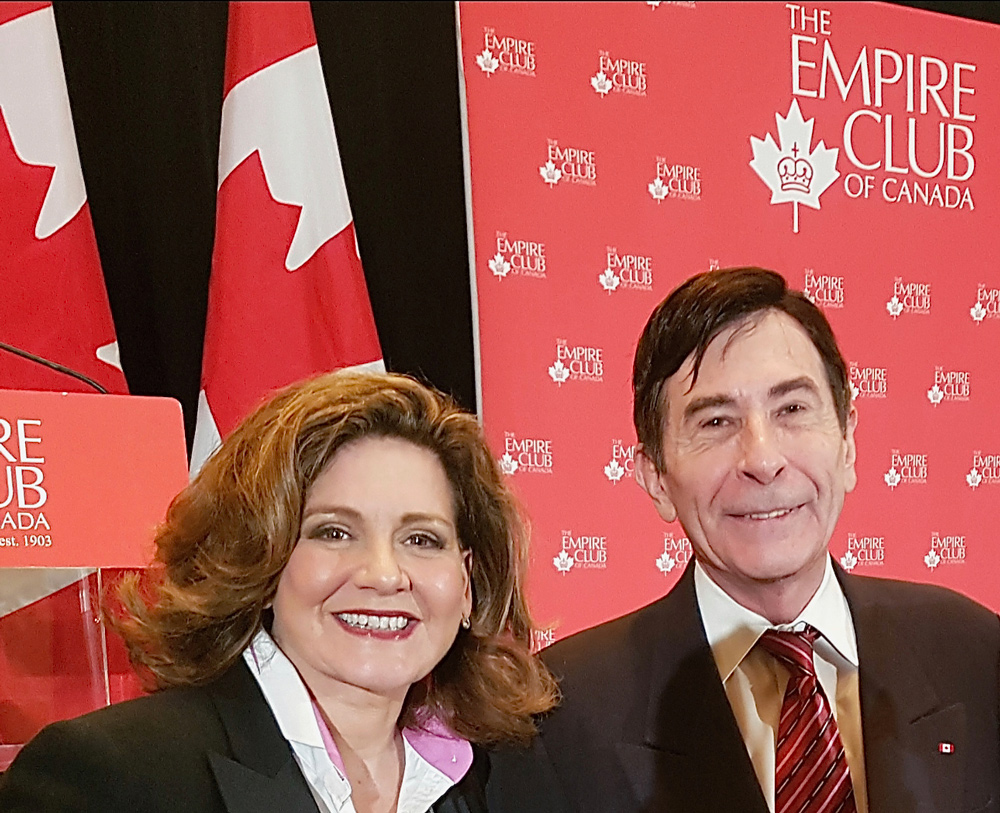It has been said that history is nothing more than “past lies agreed upon”, and this rings as true as ever today in this world of “fake news” and increasingly blurred lines between reality and our perception of reality. Students, academics, researchers, and journalists are increasingly encouraged to go to the source of the news so that they can see what was actually said and in what context it was said, not someone else’s interpretation of what was said which may be coloured by individual belief systems and prejudices or assumptions.
The website you are about to visit contains no interpretations of famous speeches delivered by political, business, and societal leaders but rather the speeches themselves, raw and unedited as they were delivered on the floor of the Empire Club of Canada starting on a cold November afternoon in 1903.
In many ways, we at the Empire Club Foundation view this site as a metaphorical mirror, allowing us to see and hear the words from many thousands of speeches that reflected directly the history of our nation. There is no interpretation here, no attempt to “translate” what was meant by each speaker, but rather the source speech as it was delivered at the time. The reader is as such called on to NOT interpret the words of our past speakers in the context of today’s world, which would be both dangerous and intellectually dishonest, but to instead try to place them into the context of the era in which they were delivered. Secondly, this imposes a certain responsibility on the reader to learn more about the history of Canada in order to better understand these treasures of canadiana. Let’s take an obvious example…the Club was extremely “British centric” in its early decades, something which is much easier to understand and digest when one is aware that all residents of Canada were British subjects in 1903, so this focus was natural and even very healthy at the time. The country and the Club changed dramatically along the way and continues to achieve great success because it evolves with the country. In another 120 years, future Canadians may well look back at some of our beliefs and actions of today and be as surprised and sometimes even a bit uneasy as we are when we look back at some of the beliefs of the past and how they were handled. My favorite example of this comes with a very popular speaker from the mid twentieth century who called himself “Grey Owl” and who passed himself off at the time as a First Nations leader. He wasn’t First Nations at all but British, and the really surprising thing here is that everyone seemed to know that and NOT care. In today’s world, this would quite frankly be viewed as shocking, inappropriate and above all else disrespectful of this land’s original inhabitants. The world has changed for the better in many social areas such as this one, but we should celebrate this change by understanding how the world, Canada and the leaders of the Empire Club of Canada handled these issues in the past.
We should never be held back by history. Understanding the past of our country allows us to be more engaged as citizens and to be more prepared for constructive policy changes going forward. Reading the real words of the leaders of the past 120 years helps to better prepare us for the present and the future.
The Empire Club and its Foundation are committed to preserving the history of our iconic Club because we all know that it is a mirror image of our great nation. Today as we continue to expand our reach by emphasizing inclusiveness and diversity, we know that our history and our ability to evolve with that ever-changing history is the primary reason that the Empire Club of Canada is as strong and as respected as we were at the outset of the twentieth century.
Dr. Gordon McIvor
President, Empire Club Foundation

